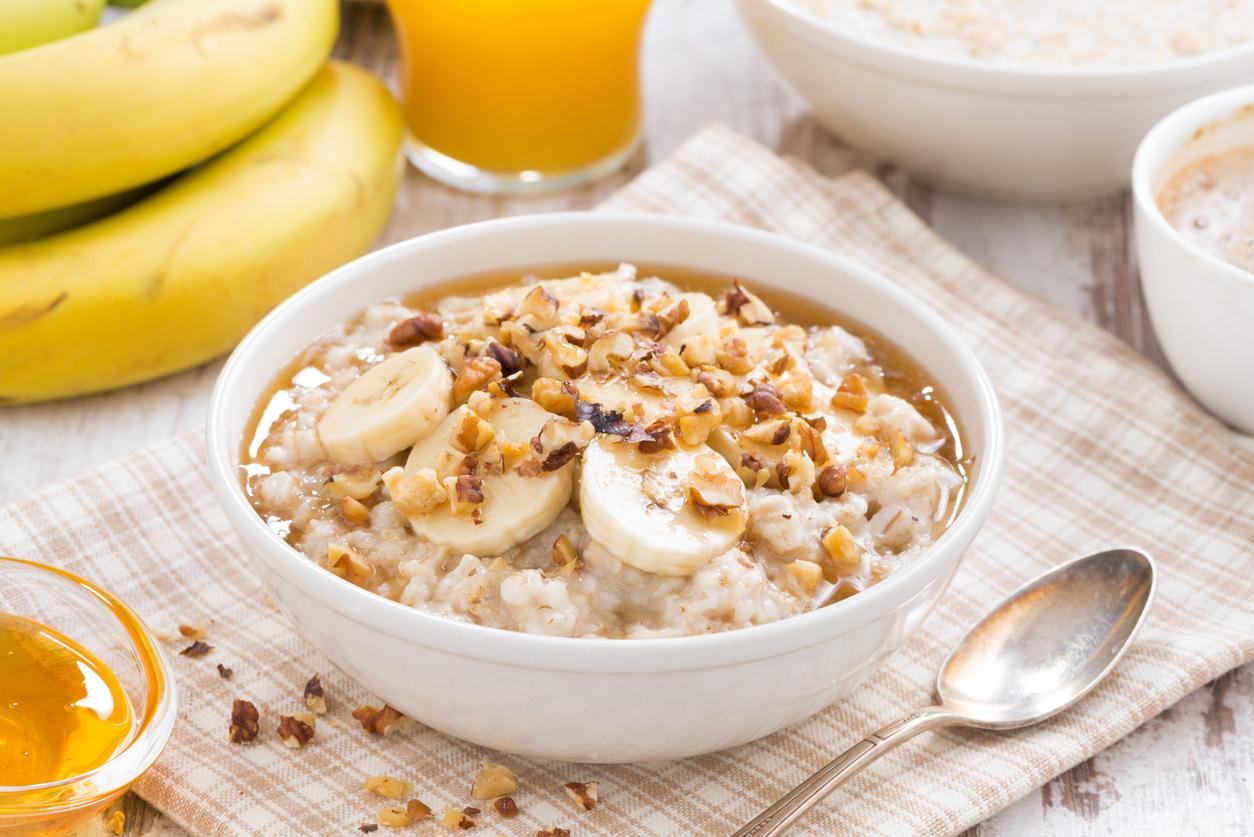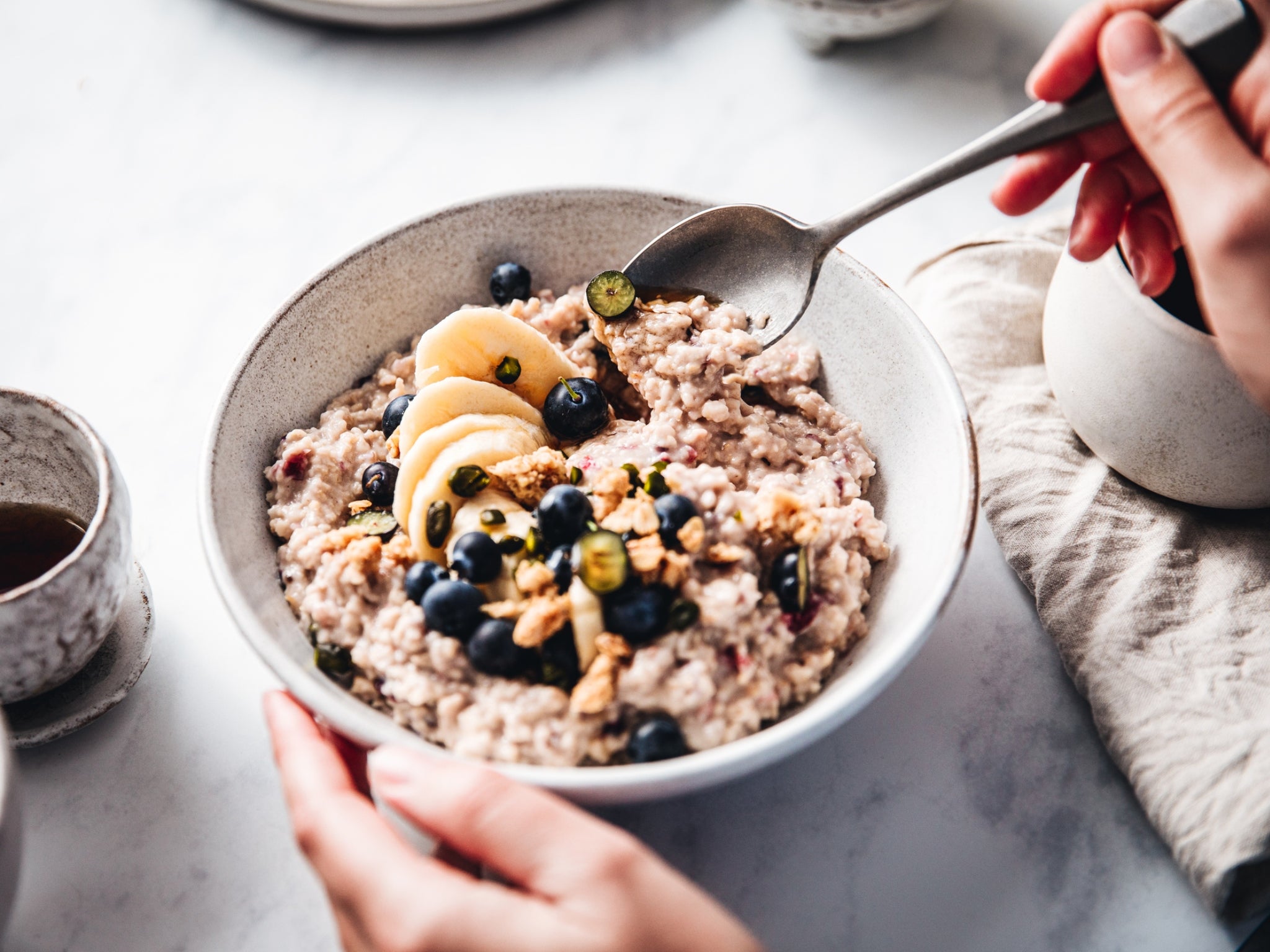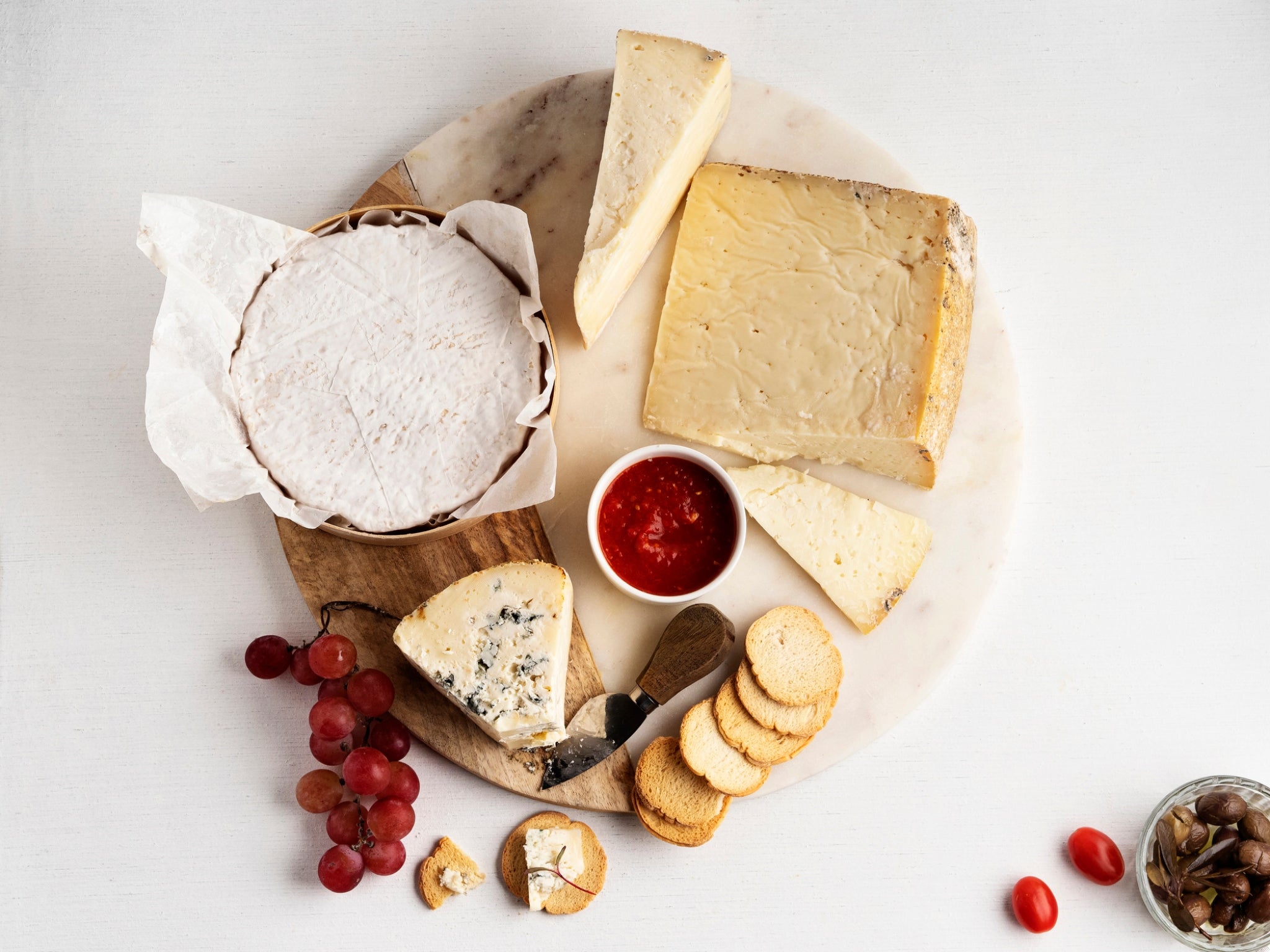The Independent's journalism is supported by our readers. When you purchase through links on our site, we may earn commission.
What to eat before bed if you want a good night’s sleep – and what to avoid
You may have to step away from all your favourite foods unfortunately

[This article was originally published in 2017.]
Lavender on your pillow, avoiding all digital screens, meditation — there seem to be endless ways that promise a good night’s sleep.
But according to sleep expert Sammy Margo, it could be as simple as eating the right foods before bed.
Margo, author of The Good Sleep Guide, revealed that while certain foods can help us drift off, the wrong ones can keep us up.
New research by Simba Sleep has revealed that over two thirds (69 per cent) of Brits feel sleep-deprived, and our love of spicy foods, caffeine and alcohol may hold the cause.
About a third of people struggle with insomnia, and judging by Margo’s suggestions, we should all be eating foods that are more often associated with breakfast before bed - brinner, anyone?
The five foods you should eat before bed:

1. Bananas
Although generally considered an energy-boosting food, bananas are rich in magnesium which relaxes muscles and they also contain serotonin and melatonin, which encourage sleep.
2. Almonds
Known as a great source of healthy fats, almonds are also bursting with tryptophan and magnesium, “which both help to naturally reduce muscle and nerve function while also steadying your heart rhythm,” according to Margo.
3. Honey
Just one teaspoon of honey is enough to stimulate the release of melatonin in the brain and shut off orexin (which keeps us alert), thus helping you to wind down.
4. Oats
As well as being yet another food rich in vitamins, minerals and amino acids which promote sleep-inducing melatonin, oats encourage insulin production and naturally raise blood sugar.
5. Turkey
One of the most famous sources of tryptophan, turkey is also a great source of protein and will make you feel full so you don’t wake up in the night hungry.
And here’s what to avoid consuming before bed:

1. Alcohol
Whilst you might find one glass of wine (or your drink of choice) helps you nod off, alcohol stops you falling into deep sleep.
2. Cheese
Ever heard people say they have strange dreams after eating lots of cheese? Hard cheese contains high levels of the amino acid tyramine which actually makes the brain feel more alert.
So despite our fondness for a post-dinner cheese board, chowing down will only make it harder for you to fall asleep.
3. Spicy food
Ever had, ahem, digestion issues after a curry? As well as indigestion, chilli peppers contain capsaicin which makes it harder for your body to regulate temperature thus resulting in a less peaceful night’s sleep.
4. Fatty food
Fatty foods are hard for your stomach to digest and are more likely to cause heartburn which makes it more difficult to get to sleep. “Fatty foods high in protein, like steak, digest slowly and may disturb our Circadian rhythm,” she says.
5. Coffee
Perhaps obvious, the caffeine in coffee makes it a no-no before bed — the stimulant stays in your system for a long time and you can still be feeling the effects even ten hours later.
“While particular foods and drinks may feel warming, those that are spicy, caffeinated, or high in fat and protein can play havoc with our sleep,” Margo said.
“Lying down after eating a spice-laden meal can result in heartburn and a restless night."
She said that while nightcaps can cause drowsiness, too much alcohol can stop you from entering the deeper stages of sleep. This results in grogginess the next day.
So unfortunately it looks like a lot of the most delicious things to munch of an evening aren’t helping fight our insomnia at all.
The answer? Perhaps a bowl of porridge with honey, banana and almonds. Keep the turkey separate, unless that’s your thing.
Join our commenting forum
Join thought-provoking conversations, follow other Independent readers and see their replies
Comments
Bookmark popover
Removed from bookmarks